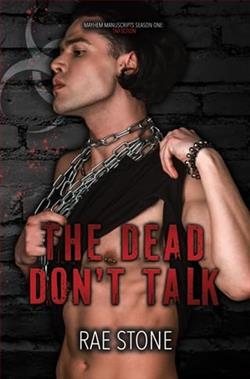Page 312 of The Pillars of the Earth
She stood up. “Let’s go into the back room.”
With a regretful look at the leg of mutton, Jack left the table and followed her into the bedroom. They left the door open, as usual, to avoid suspicion if someone should come into the house. Aliena sat on the bed and folded her arms across her chest. “I’ve made an important decision,” she began.
She looked so grave that Jack wondered what on earth it could be.
“I’ve lived most of my adult life under two shadows,” she began. “One was the vow I made to my father when he was dying. The other is my relationship with you.”
Jack said: “But now you’ve fulfilled your vow to your father.”
“Yes. And I want to be free of the other burden, too. I’ve decided to leave you.”
Jack’s heart seemed to stop. He knew she did not say such things lightly: she was serious. He stared at her, speechless. He was disoriented by the announcement: he had never dreamed she could leave him. How had this dreadful thing crept up on him? He said the first thing that came into his head: “Is there someone else?”
“Don’t be daft.”
“Then why?”
“Because I can’t take it anymore,” she said, and her eyes brimmed with tears. “We’ve been waiting ten years for this annulment. It’s never going to come, Jack. We’re doomed to live this way forever—unless we part.”
“But ...” He cast around for something to say. Her announcement was so devastating that arguing with it seemed hopeless, like trying to walk away from a hurricane. Nevertheless he tried. “Isn’t this better than nothing, better than separation?”
“In the end, no.”
“But how will it change anything if you move away?”
“I might meet someone else, and fall in love again, and live a normal life,” she said, but she was crying.
“You’ll still be married to Alfred.”
“But nobody will know or care. I could be married by a parish priest who has never heard of Alfred Builder and who wouldn’t consider the marriage valid if he knew of it.”
“I don’t believe you’re saying this. I can’t take it in.”
“Ten years, Jack. I’ve been waiting ten years to have a normal life with you. I won’t wait any longer.”
The words fell on him like blows. She carried on talking, but he no longer understood her. All he could think about was life without her. He interrupted her: “I’ve never loved anyone else, you see.”
She winced, as if she was in pain, but she went on with what she was saying. “I need a few weeks to arrange everything. I’ll get a house in Winchester. I want the children to get used to the idea before their new life begins—”
“You’re going to take my children,” he said stupidly.
She nodded. “I’m sorry,” she said. For the first time her resolve seemed to waver. “I know they’ll miss you. But they need a normal life too.”
Jack could not take any more. He turned away.
Aliena said: “Don’t walk out on me. We ought to talk some more. Jack—”
He went out without replying.
He heard her cry out after him: “Jack!”
He walked through the living room, not looking at the children, and left the house. In a daze he walked back to the cathedral, not knowing where else to go. The builders were still at lunch. He was unable to weep: this was too bad for mere tears. Without thinking, he climbed the staircase in the north transept, all the way up to the top, and stepped out onto the roof.
There was a stiff breeze up here, although at ground level it had hardly been noticeable. Jack looked down. If he fell from here he would land on the lean-to roof of the aisle alongside the transept. He would probably die, but it was not certain. He walked to the crossing and stood where the roof suddenly ended in a sheer drop. If the new-style cathedral was not structurally sound, and Aliena was leaving him, he had nothing left to live for.
Her decision was not as sudden as it seemed, of course. She had been discontented for years—they both had. But they had got accustomed to unhappiness. Winning back Earlscastle had shaken Aliena’s torpor, and reminded her that she was in charge of her own life. It had destabilized a situation that was already unsteady; rather in the way that the storm had caused cracks in the cathedral walls.
He looked at the wall of the transept and the roof of the side aisle. He could see the heavy buttresses jutting out from the wall of the side aisle, and he could visualize the half-arch, under the roof of the aisle, connecting the buttress to the foot of the clerestory. What would solve the problem, he had thought just before Philip had distracted him this morning, was a taller buttress, perhaps another twenty feet high, with a second half-arch leaping across the gap to the point on the wall where the cracks were appearing. The arch and the tall buttress would brace the top half of the church and keep the wall rigid when the wind blew.















